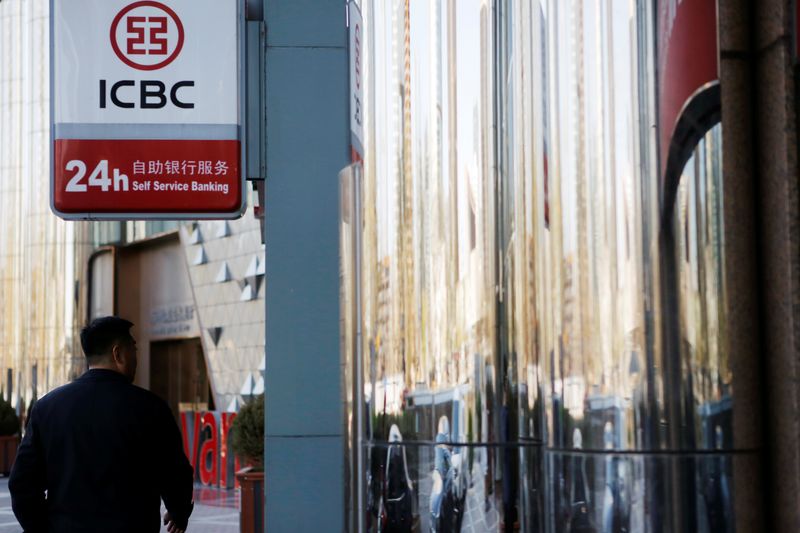BEIJING/SHANGHAI (Reuters) – Three of China’s largest lenders on Friday booked a jump in fourth-quarter net profit of well over 40%, the first green shoots since the global COVID pandemic battered borrowers last year.
Net interest margins remained stable for all three, as analysts predict a positive turn in the key gauge of profitability this year.
During the first three quarters of 2020, Chinese lenders made hefty loan-loss provisions as Beijing urged the sector to step up lending to pandemic-hit sectors, but many have begun to see improvements in earnings in tandem with an economic recovery and are expected to continue to do so throughout the year.
“Banks’ average net interest margin is unlikely to narrow further from the 2020 level of 2.1% because of the central bank’s gradual return to a neutral monetary policy stance,” said Moody’s in a March China Banking outlook.
Industrial and Commercial Bank of China (ICBC) and Bank of Communications Co Ltd (BoCom),, booked a jump in fourth-quarter net profit on Friday of well over 40%.
Meanwhile, China Construction Bank Corp (CCB) logged a 58% surge in fourth-quarter net profit.
It was the first profit gain in three quarters for all three lenders.
For ICBC, profit for the full year increased 1.2% to 315.9 billion yuan, while at BoCom, it climbed 1.3% to 78.3 billion yuan. CCB profit over the same period increased 1.6% to 271.1 billion yuan. All three lenders surpassed Refinitive estimates.
For all lenders, the net interest margin (NIM) – a key guage of bank profitability – stayed mostly steady. Non-performing loan ratios remained flat from BoCom and ICBC, but rose slightly for CCB from 1.53% at the end of September last year to 1.56% end 2020.
LONG COVID
But despite the rosier figures, bankers still warned of lurking uncertainty from the pandemic.
“In 2021, challenges remain for the pandemic prevention and economic growth,” said ICBC Vice President Wang Jingwu.
In its financial statements, CCB underlined the pressure on asset quality from “the slowdown in macroeconomic growth, intensified turbulence in the international financial market, and rising uncertainties and instabilities in the economic environment.”
($1 = 6.5390 Chinese yuan renminbi)
(Reporting by Zhang Yan, Cheng Leng in Beijing and Engen Tham in Shanghai; Editing by Simon Cameron-Moore and Steve Orlofsky)
























